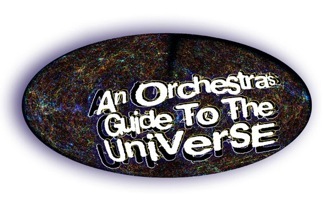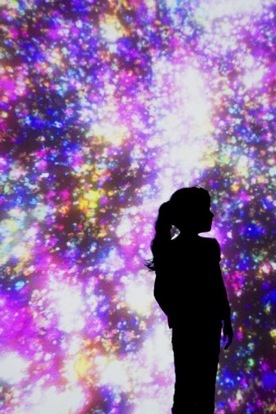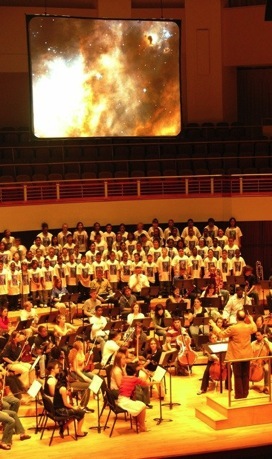An Orchestra’s Guide To The Universe


While the “outer concert” features masterpieces by Mozart and Ravel, sequences that enter the child’s imagination feature performances and material students have prepared through the complementary curriculum.
The cosmic journey introduces a variety of musical styles, from classical to rap, and includes original music by Arthur Bloom as well as material produced by the students themselves. Imagination sequences also feature spectacular images from space, videos, and animations projected into the hall.
Students perform mainly as a chorus, with some performing additional acting, reciting, or singing roles. The performance may also include guest musicians such as an African drummer, and lasts approximately 75 minutes (without intermission).
Developed with support from NASA, An Orchestra’s Guide To The Universe is based on a plot in which a dozing child’s imagination takes the concert on a journey through the universe, crashing it into a black hole at one point, bringing it back to the big bang at another. Finally, the child returns the concert to Earth and wakes up so that it may conclude in its original reality.

The culminating performance – a multimedia event featuring the students, classical, jazz, rock, and African music punctuated by images from space projected into the hall, and a plot in which a dozing child blasts the concert into the universe – thrills audiences and communicates astronomy to the public in a compelling new way.
Students prepare for their role in the culminating performance through a special curriculum in both music and science, and in collaboration with professional musicians and scientists.
Through the extraordinary journey that summits in a performance with the orchestra, the program helps students realize through experience rather than words that they are able to achieve ambitious goals, and that hard work is the key.
